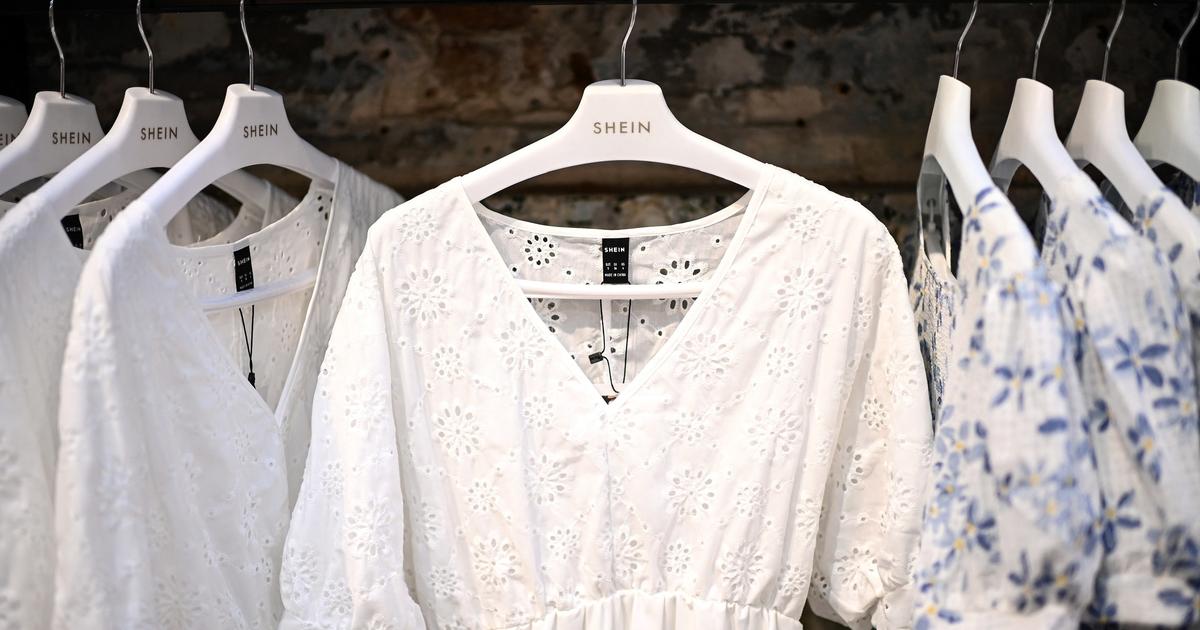A t-shirt for 7.41 euros, a hoodie for 9.61 euros, cargo pants for 14.79 euros… On the Chinese platforms Shein and Temu, ultra-fast fashion is a hit.
This segment represented 12% of the clothing market share in France in 2022: low prices, touted by hundreds of influencers on social networks, appeal to consumers, also lured by the renewal of collections at a frenetic pace - more than 8,000 new references per day on Shein, for example.
A juicy business that the government wants to regulate, pointing out its disastrous ecological impact and unfair competition against French brands... To the detriment of the most modest?
Slashed prices are obviously what motivates many customers - and particularly the youngest - who do their shopping on these online shopping sites - but also at the giant Primark, which practices extremely low prices but has stores physical.
In an inflationary context, with weakened purchasing power,
“fashion is an adjustment variable”
, recalls Gildas Minvielle, director of the economic observatory of the French Fashion Institute.
It is therefore not surprising to see consumers turning to low cost.
But the good deal, in appearance, would not really be one.
Clothes that wear out quickly
“We are wrong to say that it is not expensive if it does not last long
,” underlines Gildas Minvielle.
The reason is the poor quality of ultra-fast fashion clothing, from materials to manufacturing.
“What we buy doesn’t last,”
points out Catherine Dauriac, coordinator of the NGO Fashion Revolution.
It pills, it deforms… After four or five washes, they will self-destruct.”
The synthetic materials used, largely polyester, are also bad for the environment and the skin.
If you want to be rational, it is better to invest in quality, even if it means buying less with the same budget.
“We suspect that it will not last,
” explains Thomas Graffagnino, retail and mass consumption expert at SIA Partners.
But the price is so low that we see it as if it were second hand on Vinted.
We tell ourselves that at worst, we only lose a few euros.”
A way to
“treat yourself”
by multiplying purchases to satisfy your desires, favoring quantity over quality for the same budget.
Read also Every day, 160 tons of clothes are dumped there: Ghana, trash can of the world's textiles
Compulsive purchases
Low prices encourage these compulsive purchases, which bring more satisfaction than holding back to buy a piece, even one of better quality.
Clothing ordered on a whim sometimes remains in the closet without even having been worn.
A sign of the acceleration of this trend: if the number of pieces of clothing purchased per person soared by 60% between 2000 and 2014, the duration of use of these clothes was halved, suggests a study by McKinsey published in 2016.
This overconsumption is knowingly encouraged by the ultra-fast fashion industry: it is the basis of its model.
“It’s the genius of fast fashion,”
notes Julia Faure, co-president of the Impact France movement and founder of the Loom brand.
With this plethoric renewal of the collections, we will make you want a lot of things that you don't need and allow you to buy it because it's not expensive.
Not to mention the advertising hype of these platforms, which perfectly master the codes of social networks and are promoted by influencers to stimulate our purchasing impulses.
In all this, ecological and ethical convictions sometimes take second place.
“It's like in the supermarket: between a French product at 20 euros per kilo and an imported product four times cheaper, no matter how much we want to support French farmers on paper, in the end, it's the wallet that speaks
,” points out Thomas Graffagnino.
Except that clothing is a long-term investment, intended to last.
And that low cost, while it provides a service at the moment, fuels a vicious circle of impoverishment, assures Julia Faure.
“To sell cheaper we will produce further: hundreds of thousands of jobs have disappeared in France in textiles since the 1990s. So no, it’s not really a gift for the less fortunate.”

